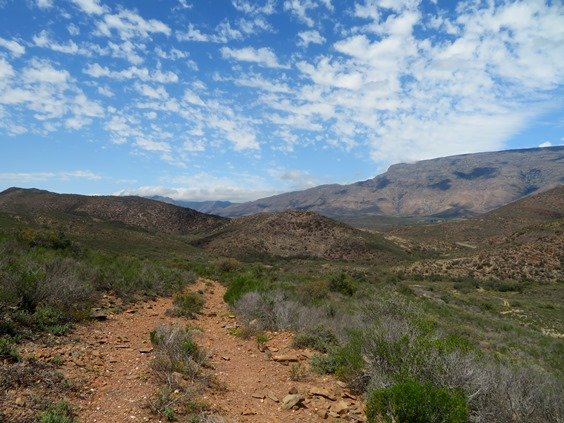The road less travelled

Author: Ivan Lätti
Photographer: Thabo Maphisa
The future of the road less travelled is doomed. This is so, for the masters of civilisation value the accelerator over the brake.
Human progress aims in every direction, making too many economies on earth grow. We multiply settlements everywhere, fill them with houses, gizmos and gadgets for every need and whim, while more people lose the battle of sharing in the progress.
Since people are the same in experiencing themselves as different, they keep choosing differently making civilisation expand in countless new directions. The majority fails in achieving their dreams. Still, they are fired up by the example set by the affluent few. Collectively they do succeed, however, in destroying nature as a by-product of their misery.
Road building or gradual widening is accelerated while people numbers grow. Piling of debris on roadsides goes without saying. The links among towns and nations spawn more trade and travel, more missions, more tourism. More places near water sources are taken for low-cost housing. Otherwise, slums proliferate spontaneously with the burgeoning township sprawl, as the frothy fringes.
Individuals, rich and poor, retain fewer friends, although their numbers are seemingly augmented by the illusion of mass media acquaintances, a shallow business. And always more customers, suppliers, beneficiaries and victims, for we are legion.
Modern times allow for people, particularly the affluent, to pick their friends in faraway places, hence more roads. Families disperse globally, feeling OK about it as they do not lose contact. The world is your oyster leaves a warm feeling, lasting as well as wetting yourself.
For progress from speedier travels over greater distances adds miles rather than closeness. What lubricates the economy must be good. Roads like the one in picture require attention, or do they?
Wider for bigger vehicles, more lanes for more traffic, shoulders for emergency stops, fuel stations and shops with facilities for tourist comfort, pavements for pedestrians and cyclists, storm water drains for flooding, notice boards for marketing, overhead and underground cables for power and communication all eat into the vegetation and the often unique micro-ecologies.
All the desired, required or abhorred development arrives anywhere in the fullness of time, once people eye a particular road. It starts with a committee. Decisions hinge on budgets, vested interests, debating clamour and occasionally the needs that really press.
Great-grandfathers walked these roads and noticed things due to the relaxed speed of their strolls. They knew more insects, birds and flowers by name and sight than their modern counterparts, empowered by books at home and electronic devices in their pockets. And they saw less debris left by earlier travellers.
Reflection and observation used to be part of all travelling in the days of horse-drawn carriages and sailing ships. Allow for it and stop watching the time so agitatedly when pushing the accelerator? Urgency of the moment generates unnecessary haste. But what about the deadline and the money?
Where this oh, so finite life is going should be more important to thinkers superior to insects. Or what will evolution do to the thinking of their grandchildren?
Better outcomes may become possible from clear visualisation of the likely outcome of a current course of action. Destiny awaits all, at the other end of collected chosen destinations.

